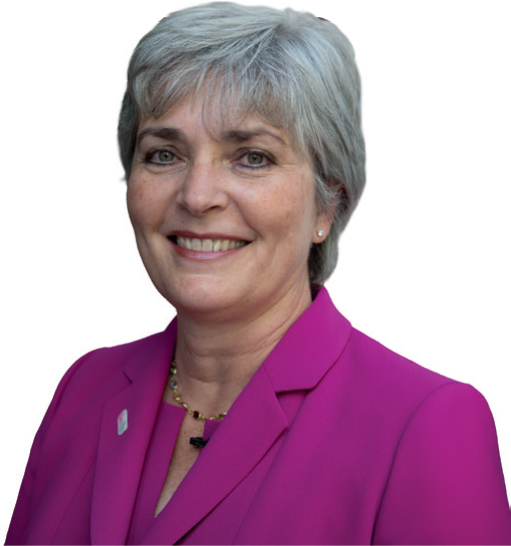
The QNI annual online conference was held last week, with over 450 delegates attending. An impressive range of high-profile presenters contributed their insights and expertise to the subjects covered, and one that arose several times throughout the event was the importance of child health. Many speakers talked about the work to be done on the prevention of ill health and the promotion of good physical, emotional and mental health and wellbeing.
On day one, we focused on evidence-based practice and Professor John Unsworth OBE, Queen's Nurse and Chair of the QNI, spoke about the international research he is undertaking, which will potentially validate the advanced practice work of health visitors in the UK.
A presentation by Professor Gina Higginbottom MBE, QNI Fellow, and Dr Ben Bowers, Queen's Nurse, provided a superb description of the varied ways in which nurses can become involved in research, with Professor Higginbottom sharing her journey into a research career as a health visitor.
The QNI community nursing research forum, funded by NIHR and led by Dr Ben Bowers, has had a measurable impact on members' research development and I encourage all registered nurses and health visitors to join (https://qni.org.uk/nursing-in-the-community/community-nursing-research-forum). The day also included a focus on the QNI Standards and a session focused on community children's nursing, led by Rebecca Daniels, Queen's Nurse (https://qni.org.uk/nursing-in-the-community/uk-community-childrens-nurses-network/about-the-uk-community-childrens-nurses-network).
Day two focused on those communities that are seldom heard, and we were reminded by Andy McGowan of the large number of young carers who support their loved ones at home. Andy is the Policy and Practice Manager at the Carers Trust and his paper summarises some of the facts he presented us with (Carers Trust, 2024a). Ten per cent of children have a carer role in their family; this equates to 1 million children in the UK and, on average, two in every classroom at school. This is of huge significance to nurses and health visitors involved with supporting the health and wellbeing of parents and children. Andy's call to action was for all of us to know the local support available for young carers in the local area and to ask the question of young people (Carers Trust, 2024b).

The theme of day three was careers in the community and we were honoured to have Professor Laura Serrant CBE, Queen's Nurse and Fellow of the QNI, share her impressive career journey as a nurse and a health visitor. Laura is a multi-award-winning leadership development and inclusive practice specialist, and she is the author of over 100 articles and books. Her story from nursing student to health visitor to researcher and being named as the eighth most influential black person in Britain by the Powerlist in 2018 was deeply moving and inspirational.
There was not a dry eye in the audience when she read her poem ‘You Called … And We Came’, written to commemorate the anniversary of the Empire Windrush landing in England. The poem now forms part of the national Windrush monument at Waterloo Station (https://windrush-monument.levellingup.gov.uk/the-national-windrush-monument).
On the final day of the conference, themed around policy, we were honoured to host Dr Barbara Stilwell, Fellow of the QNI and specialist in global health and nursing. Barbara is a pioneer in advanced practice and was the first nurse practitioner to work in the UK. She shared how she had influenced the advancement of nursing in the UK and globally through her leadership of the Nursing Now programme. Barbara shared the evidence showing that community nurses influence positively not only the health of the families and children they serve; they also have a measurable economic value to the population by doing so, as described in her latest book (Stilwell, 2024).
Barbara also discussed the image of nursing, calling for ‘no more lamps’ in illustrating the work of modern day nurses and the importance of articulating our value and evidencing the impact of our work. It was a meaningful call to action from a living nurse legend that we will all reflect on in the coming weeks.


